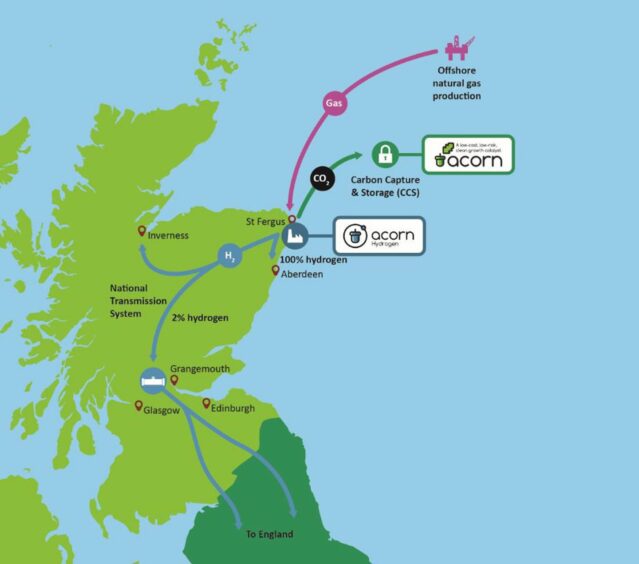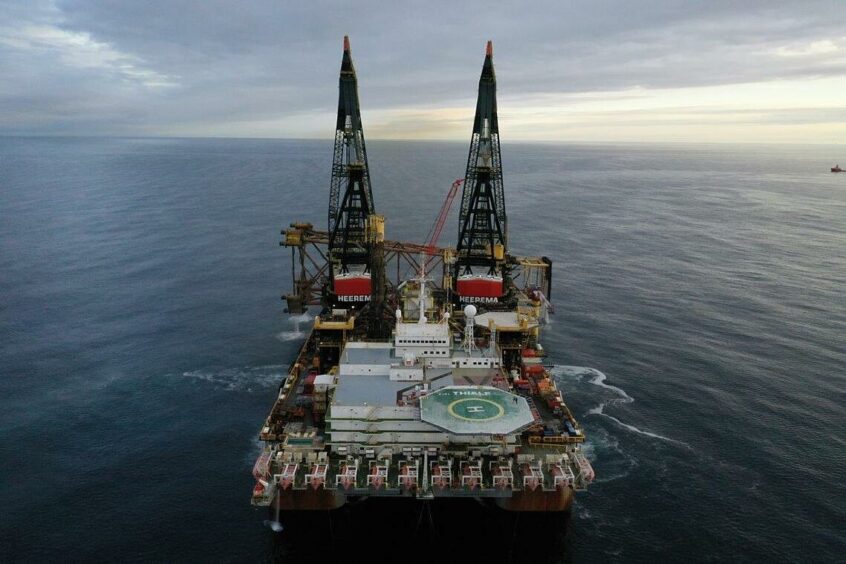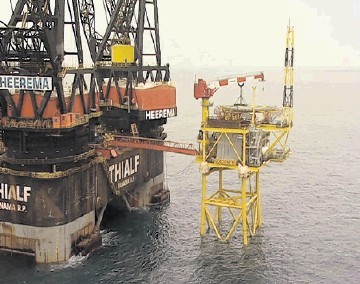Despite not being able to boast action starring Pierce Brosnan and Sean Bean, like its Hollywood namesake, Shell’s Goldeneye is equally exciting for the future of CCS.
Shell’s field in the North Sea is set to be the storage site for the Acorn Carbon Capture Storage (CCS) project that recently received the green light from Prime Minister Rishi Sunak through the government’s Track 2 process.
Goldeneye, the field, not the secret space-based weapons program featured in the 1995 spy flick of the same name, is located around 62 miles off the Aberdeenshire coast and its connected pipeline is set to be repurposed to transport carbon dioxide offshore for subterranean storage.
Through the Acorn project, the existing Goldeneye pipeline will be used to allow emissions to be transported from the St Fergus gas terminal near Peterhead to the North Sea.
Senior vice president of upstream at Shell UK, Simon Roddy, explained that the supermajor was looking to put its “upstream business in reverse” when the firm announced the pipeline would play a role in the CCS project.
Licence to Store
Producing first gas in 2004, the Shell field ceased production in 2011 and is now looking to play a key role in the Carbon Capture Utilisation and Storage (CCUS) cluster in the north-east of Scotland.
Late last month the Acorn CCS project in Aberdeenshire was officially selected as one of the first four carbon capture clusters in the UK, bringing years of waiting to an end.
Funding is being awarded as part of “Track 2” of a £1bn UK Government competition, Prime Minister Rishi Sunak broke the news ahead of a trip to Aberdeenshire as part of the UK Government’s “Energy Week”.
Acorn initially lost out on the contest’s first “track” of funding in 2021, with projects in Wales and Teesside selected instead, and earlier projects in Peterhead being cancelled.
Shell is a key stakeholder in the Acorn Project alongside Storegga, North Sea Midstream Partners (NSMP) and Harbour Energy.
Mr Roddy previously said: “As part of the Acorn CCS project, we will put our upstream business in reverse.
“The Goldeneye pipeline, which comes onshore at St Fergus, will be repurposed to take CO2 from St Fergus to storage offshore.
“Together with our partners, we’re not just talking about doing this, we’re doing it.”
Live and Let Die
The Goldeneye 1,400 tonnes topside platform was removed by Heerema’s Thialf in 2021, almost 20 years after the semi-submersible crane vessel (SSCV) installed the structure.
Goldeneye was installed by the Thialf vessel in 2003 and started production from the gas-producing field the previous year.
Now the space has been given a new lease of life as the Goldeneye pipeline connects the St Fergus gas terminal to the North Sea storage site, capable of exporting emissions with up to 120 barg of pressure.
The Acorn project is expected to store around 5 million tonnes of CO2 per year in its first stage and the UK estimates some 50 million tonnes is required by 2035 to hit net zero.
Recommended for you






 © Supplied by UNITED ARTISTS
© Supplied by UNITED ARTISTS © Supplied by Storegga
© Supplied by Storegga






